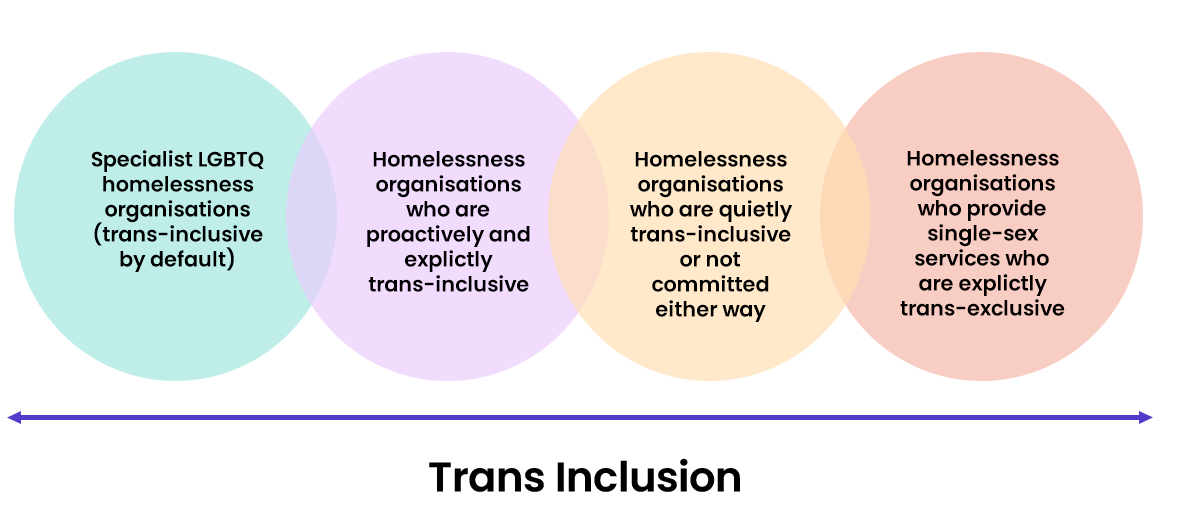On 16th April 2025 judges at the UK Supreme Court ruled that a woman is defined by biological sex under equalities law.
The court case, For Women Scotland Ltd vz Scottish Ministers originated as a challenge against the Scottish Government’s definition of a woman in relation to gender quotas on public boards. The Scottish Government held that a Gender Recognition Certificate (GRC) defined a person as a woman under the Equality Act 2010. The recent ruling has reversed this, finding that the legal definition of a woman is defined by biological sex, and therefore meaning it excludes transwomen (where they were assigned male at birth).
There has been a lot of concern and confusion in the sector about what this means for both workplaces and service delivery and following an initial response to the court ruling, Homeless Link convened a roundtable discussion with a range of different organisations across the sector; from large housing providers, small day services, support providers and specialist LGBTQ+ organisations. Based on these conversations it is apparent that, regardless of the recent court ruling, the homelessness sector is diverse, and on trans inclusion there are a spectrum of approaches:

For this reason, the response to the court ruling has been varied, with an overriding fear of getting things wrong on what is such a sensitive, and often divisive topic. As we await further guidance from the Equality for Human Rights Commission, organisations are grappling with decisions to best meet the needs of everyone being supported, which also includes staff in homelessness services. Some organisations are taking a position to continue with trans-inclusion, and are preparing to make potential changes to their single sex services and support. Others attending the roundtable are taking other actions such as seeking legal advice, reassuring staff about organisational commitments to equality, diversity and inclusion and considering how to co-produce next steps with staff and the people they support. The impact of the court ruling will take time to understand, and most services are waiting for clear guidance before taking action, although it is important to remember that the ruling has not changed the protections trans people have under the Equality Act.
People experiencing homelessness are some of society’s most vulnerable and it is vitally important that as a sector, we respond to this ruling in a caring, proportionate and trauma-informed way. There will be a need for further guidance, training and support as we navigate through the coming months.
The Equality for Human Rights Commission currently has an open consultation, which is seeking to is gather feedback on proposed changes to the code of practice for services, public functions and associations.
We strongly encourage homelessness services to feed into this consultation which closes on 30th June 2025 and will inform our next steps as a sector.
